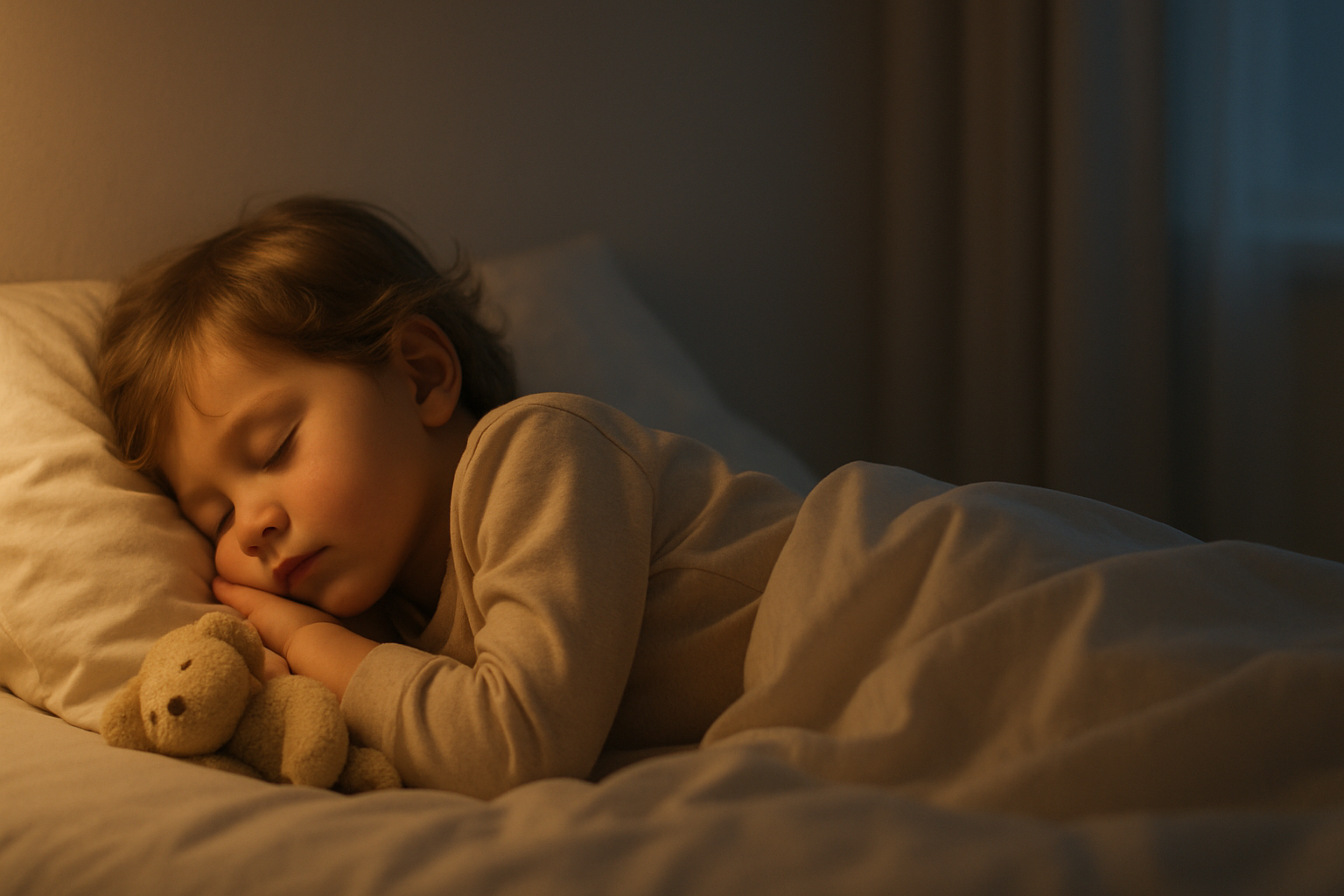Most people who stall out on fat loss reach for a new diet knob (cut carbs) or a training lever (add more cardio). But there’s a quieter variable that pulls the strings on hunger, self-control, recovery, and what kind of weight you lose: sleep. As followers of Jesus, we don’t treat rest as a secondary thought; we treat it as stewardship. Our bodies are “temples of the Holy Spirit” (1 Corinthians 6:19–20), and sleep is one way we honor that stewardship—resting the body God gave us so we can serve with strength, calrity of mind, and stable in our emotions and reactions.
Scientifically, sleep is not just a passive state; it’s a patterned set of behaviors and brain-body changes (breathing, temperature, heart rate) that drive neurological recovery, muscle repair, and immune function—the very processes fat loss and performance depend on.
Interestingly enough the scriptures referred to sleep as a place in which the Lord can speak to you as well. The prophet Joel spoke about old men dreaming dreams that the Lord would show them.
1) “How much sleep do I actually need?” (And why the answer is nuanced.)
We all want a magic number. The evidence consistently associates ~7–8 hours with better outcomes, but there’s flexibility—many people function well between 6–9 hours so long as it’s consistent and not chronically undercut. Regularity matters as much as duration; your nervous system likes rhythm. If you chronically sleep fewer hours you may be tempted to believe that you function well on it. If you’ve never consistently slept well for more than seven hours please do not assume that you are one of the rare ones who can function fine on fewer hours of sleep.
Also, beware simplistic takes: a lot of “sleep causes X” headlines rely on observational data that can be confounded (e.g., people who are already unwell may sleep more; phone use at night may reflect existing stress/sleep problems rather than cause them). In plain terms: aim for enough sleep that you wake restored and keep it steady across the week.
Scripture never glorifies frantic striving. “He gives to His beloved sleep” (Psalm 127:2). There are also not “extra points” awarded to the servants who sleep less. Rest isn’t a reward for finishing your to-do list; it’s a gift and a guardrail against illness, breakdown, and poor health.
2) Why short sleep makes weight loss harder (hormones, hunger, and opportunities to eat)
The vicious cycle we create is this. When sleep dips below what your body needs, leptin (fullness hormone) trends down and ghrelin (hunger hormone) trends up—small shifts that accumulate and intensify with more sleep loss. The effect can be larger for people with obesity. You’re awake longer (more eating opportunities), and fatigue lowers self-control, so cravings bite harder. Over time, that’s a slow drift toward weight gain unless you over-compensate with activity (most don’t), but this too is a losing strategy. Where are you going to get the energy for all this new activity? With weight gain comes poorer sleep quality…so the cycle continues.
Sleeping less doesn’t force you to overeat, but it raises the biological cost of saying “no.” You are fighting your biology and wondering why you are losing. That’s why dialing in sleep often feels like “willpower grew overnight.” In reality, the hormonal headwind just died down.
3) What kind of weight do you lose? Sleep decides.
This is the body-composition point most people miss. In a controlled crossover study (lab sleep, all meals standardized and provided), participants dieted for 14 days with either 8.5 hours in bed or 5.5 hours. They were all in a similar calorie deficit (a must for weight loss). Total weight loss was similar—but composition flipped: with 8.5 hours, about 50% of loss was fat and 50% lean mass (muscle). With 5.5 hours, only ~20% was from fat; the rest was lean mass. Less sleep = less muscle preserved during a weight loss attempt. .
Longer-term data rhyme with that finding: when sleep quality declines (even at the same duration), people tend to lose muscle and gain fat over time. And after you’ve lost weight, sleeping <6 hours nightly predicts ~5 kg of regain over a year; those getting ≥6 hours mostly maintain the loss.
Be aware that your metabolic rate is significantly influenced by the amount of muscle mass you possess. If you lose a substantial portion of your muscle mass during a weight loss attempt, your metabolism will slow down afterward, making it easier to gain the weight back and a bit more unless your lifestyle habits are improved.
If you want the scale to move in the right direction—more fat burned, more muscle kept—you can’t afford to shortchange sleep.
Having longterm goals of health are a part of the stewardship needed to serve well in the kingdom.
4) Performance under sleep debt: what suffers (and by how much)
Sleep debt creates a hormonal climate that’s less muscle growth and repair promoting (testosterone, IGF-1, growth hormone trend down) and more muscle wasting promoting (cortisol trends up). That’s a recovery tax you feel in the gym and on the mat or just moving around each day.
A systematic review/meta-analysis (defining sleep loss as ≤6 hours) estimates an overall performance drop ~-7.6%, with skill-based tasks hit hardest (~-20.9%), endurance next, and strength least (~-2.85%). As the day progresses, performance typically degrades further when you’re underslept. Keep in mind skill based task are performed by the central nervous system. This is your brain not working as well.
Two important guardrails:
- Even with poor sleep, training still proves beneficial (it can restore muscle protein synthesis and improve glucose control). However, the worst combination is poor sleep combined with no training.
- If you must train while underslept, prioritize quality strength work rather than long grinds. Maintain the intensity of your workouts but reduce the volume. Think of it as focusing on strength and keeping the grinding work to a minimum – shorter total time, easier runs, less trying to make gains and more keeping the habit in place.
5) The loop runs both ways: how training and nutrition change your sleep
Exercise can help you sleep better. If you’re not very active during the day, you might have trouble sleeping, but doing regular moderate to vigorous exercise can make your sleep better. A study from 2025 looked at 81 research trials with over 6,000 people and found that exercise improved how people felt about their sleep and how well they actually slept. The more consistently people exercised, the better the results. For adults who are overweight, exercise not only helped them sleep better but also supported their weight loss efforts. However, the timing of your exercise is important. Doing intense workouts late in the evening can reduce the quality of your sleep, especially the REM stage, but moderate or light activities in the evening usually don’t have this effect.
Weight changes can affect sleep. For people with obesity or sleep apnea, losing weight can help them sleep better by reducing fat around the neck and tongue, which can lower the number of times they stop breathing during sleep. For generally healthy people, cutting calories can have different effects on sleep: sometimes it gets better, sometimes it gets worse, especially if their weight goes up and down.
Coaching advice: Be more active every day, stick to a regular weekly routine, exercise harder earlier in the day, and a bit less intense as you get closer to bed time. Remember a calorie deficit of some kind is a must to lose weight, not just more exercise.
6) Practical protocols (science-first, habits-forward)
A) Sleep extension > weekend “catch-up.” Expanding your nightly sleep window (often by going to bed earlier like an adult 😉) improves weight management and performance; weekend catch-up is better than nothing but inferior to consistency.
B) Caffeine timing is individual. How quickly you process caffiene varies. Some need a ~12-hour buffer before bed; others have more margin. Even if it doesn’t delay sleep onset, it can quietly erode sleep quality—test what window keeps nights deep and mornings restored. Most people sleep better when limiting caffeine in general.
C) Naps are tools, not rules. Short 10-20 minute power naps in the early-to-mid-afternoon can boost performance; longer naps may give more benefit but risk sleep inertia (that groggy feeling) and nighttime disruption. Leave margin between the nap and training.
D) “Wind-down cues” beat willpower. Simple, repeatable evening cues—dim lights → brush teeth → read a few pages → in bed—leverage habit psychology to lower arousal and nudge the body toward sleep. You have to train your body to go to sleep and habits are the best way.
E) Walks + daylight. Break up long sitting; set step goals and get outside during daylight hours. Even low-impact movement supports better sleep quality. And the sun helps to set your sleep-wake cycle.
7) Underslept game plan (how to adjust training & nutrition today)
When last night was short (≤6 hours) and you still want to train or perform well:
- Prioritize strength by keeping your main lifts but reducing volume by 20–30%. If you play a sport, focus on technique rather than intensity.
- Condition smarter by swapping long grinders for short, controlled intervals or brisk walking.
- Protein should be steady, and carbs should be strategic. Hold protein as planned to protect lean mass, and keep carbs around the workout window.
- Caffeine should be consumed within your window. Use the smallest effective dose and avoid pushing it late, as it may negatively impact your sleep tonight.
- Commit to sleep extension tonight. Add 30–60 minutes to your bedtime, and repeat this for 2–3 nights to repay the debt you’ve incurred.
8) A one-week “sleep upgrade” that compounds fat-loss results
Day 1–2: Baseline + environment.
- Track bedtime/wake time and subjective rest (no need for a gadget).
- Darken the room, cool it slightly, set a consistent lights-out.
- Lock in a caffeine cutoff that preserves your sleep.
Day 3–4: Movement anchors.
- 10-minute daylight walk within an hour of waking.
- Break up sitting every 60–90 min.
- Keep training, but avoid late-evening max-intensity sessions.
Day 5–6: Extend + cue stack.
- Go to bed 30 minutes earlier.
- Repeat a 3-step wind-down in the same order nightly (lights down → hygiene → 5 pages of a paper book).
Day 7: Review + adjust.
- Note hunger/cravings, training quality, mental clarity, and morning energy.
- Keep what clearly helped; tweak one friction point (e.g., move caffeine cutoff earlier).
9) Why this matters for discipleship, not just data
If you view the body as a temple, sleep becomes more than “biohacking”; it’s formation. You’re practicing discipline (“I go to bed when I said I would”), humility (“the world keeps turning while I rest”), and service (rested people love, lead, and labor better). Jesus Himself slept in the boat in the middle of a storm—perfect trust embodied in human from. Rest is not the enemy of grit; it is the ground grit is built from.
Bottom line
- Short sleep tilts hormones toward hunger and impulsivity, making weight control harder.
- It also determines what you lose when you are trying to lose weight: more sleep = more fat loss, less muscle loss.
- Performance drops with sleep loss (≈-7.6% overall; skill ≈-20.9%; strength ≈-2.85%), and the day wears on you harder when underslept.
- Exercise improves sleep, especially with consistent programs; beware late high-intensity work it can impair your REM.
- Sleep extension, steady routines, smart caffeine, daytime movement, and simple wind-down cues are the boring, reliable levers that pay off. Playing catch up in the weekend can help but is far less powerful.
Honor God with your body. Steward your sleep. Watch your hunger quiet, your training improve , and your fat-loss efforts start compounding.
Sweet dreams,
Adam


